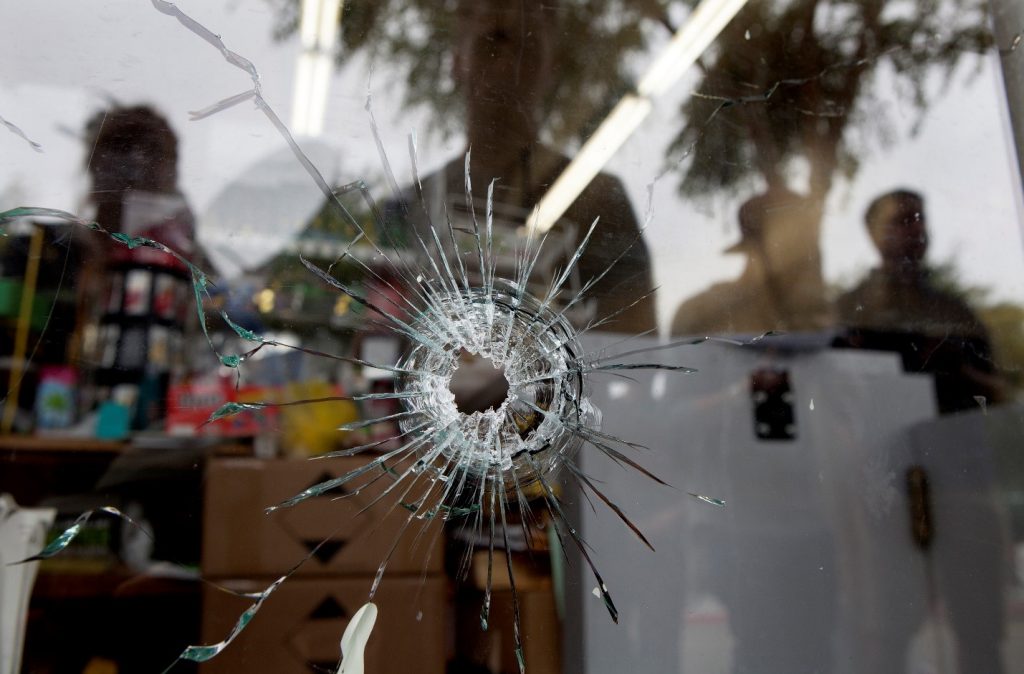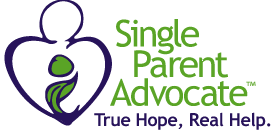
Bullet hole in the IV Deli Mart, one of several crime scenes Saturday, May 24, 2014. (Spencer Weiner/Getty Images)
Hiding inside a bathroom of a hotel suite with several of her sorority sisters, my daughter called me in a panic on the night of May 23, 2014. Earlier that day, they had piled into a stretch limousine and left their sorority house headed to Las Vegas. Shortly after departing, Elliot Rodger knocked on the door of Alpha Phi.
A friend of my daughter hurried down the stairs and towards the door ready to open it. Elliot’s forceful and insistent pounding, however, made her hesitate and turn back.
Denied entry, Elliot waited out on the lawn and fired his gun at three approaching female students, killing two. Next, he drove to a nearby deli where he gunned down a male student, then sped through crowded streets shooting pedestrians and striking others with his car. He exchanged gunfire with police receiving a gunshot to the hip. The rampage ended when Elliot’s car crashed into a parked vehicle where he was found dead from a self-inflicted shot to the head.
As I listened to my daughter chronicle the event, my whole being shuddered with horror and frustration. How much more innocent blood must be spilled, I asked myself, until we finally wake up?
“Americans,” said poet Breyten Breytenbach, “have mastered the art of living with the unacceptable.”
Like the proverbial drop that spilled the glass, the slaying of six more innocent people and Elliot’s tragic death was something I was no longer willing to accept. I decided – then and there – to use my writing talent and experience to prevent boys from sharing Elliot’s fate.
It was on that fateful night that the seed for my book was planted.
The following morning, I read the manifesto Elliot had emailed to his therapist where he said he wanted to punish women for rejecting him and sexually active men because he envied them. As disturbing as the entire manifesto was, this particular entry broke my heart:
“My life didn’t start dark and twisted. I started out as a happy and blissful child, living my life to the fullest in a world I thought was good and pure… Ever since I hit puberty, I’ve been forced to endure an existence of loneliness, rejection, and unfulfilled desires.”

Here was an innocent boy, I thought, who had started life with all the dreams and illusions of youth but had not been prepared to deal with life’s hardships and suffering. Who?! I asked myself, had been there for Elliot as he crossed the difficult threshold of boyhood to man? Where were the elder men in his life who should’ve been there to guide him?
Further research revealed that seven of the deadliest mass shootings in the U.S. were committed by young men. All – but one – were raised along their biological fathers. I became convinced that Elliot’s life, and those of the six innocent people he killed, could’ve been spared had he’d been properly initiated.
In traditional societies, initiation is a rite of passage entrusted to the male elders of the tribe meant to help boys make proper and meaningful transitions to adulthood.
In his book ‘Raising Boys,’ psychologist Stephen Biddulph says that between the age of 6 and 14, “boys lock on to their dad or whichever male is around. They want to be with him and copy him. They want to study how to be male.” A century earlier, Mark Twain said that “around the age of twelve, a boy picks a man to admire and imitates him for the rest of his life.”
Look around, and you’ll notice there are fewer and fewer male role models worth imitating in today’s world.
Initiation rites serve a deeper purpose besides helping boys safely navigate across the bewildering time between puberty and adulthood. They are also meant to make them feel valued by society, help them find their purpose, introduce them to the traditions of the community, the proper ways to relate to women, the feminine world, to their peers and elders, and teach them the skills they’ll need to survive.
American society and culture are failing miserably at this task. About the only rites of passage boys experience as they cross the threshold to young adulthood are getting a driver’s license, blacking-out from alcohol, their first sexual “conquest,” or simply transitioning from middle to high school. Absent meaningful initiation, boys, like Elliot, become disoriented, depressed, angry and often violent.
Violence, says author Parker Palmer, “is what happens when we don’t know what else to do with our suffering.”
As proof of their despair, young men are killing themselves at increasing rates, falling further behind at school, crowding our prisons, and twice as likely to be labeled “emotionally disturbed” than girls.
“If we don’t initiate the young,” warns an African proverb, “they will burn down the village to feel the heat.”
That’s the mission of ‘The Hero in You’: To initiate and mentor young boys into becoming good men of noble purpose and arm them with the character strengths they’ll need to navigate their way into adulthood so they can flourish as productive and responsible members of the human tribe.
American Statesman Frederick Douglass once said it is easier to grow strong children than to repair broken men. With my book, I aim to catch boys before they fall.
For more on the importance of initiation, click here to watch the powerful short film, ‘Rites of Passage’ from Warrior Films.
Sign-up here to receive more insightful articles on raising boys and updates on the upcoming publication of ‘The Hero in You.’
To find a mentor for your boy, click here.


